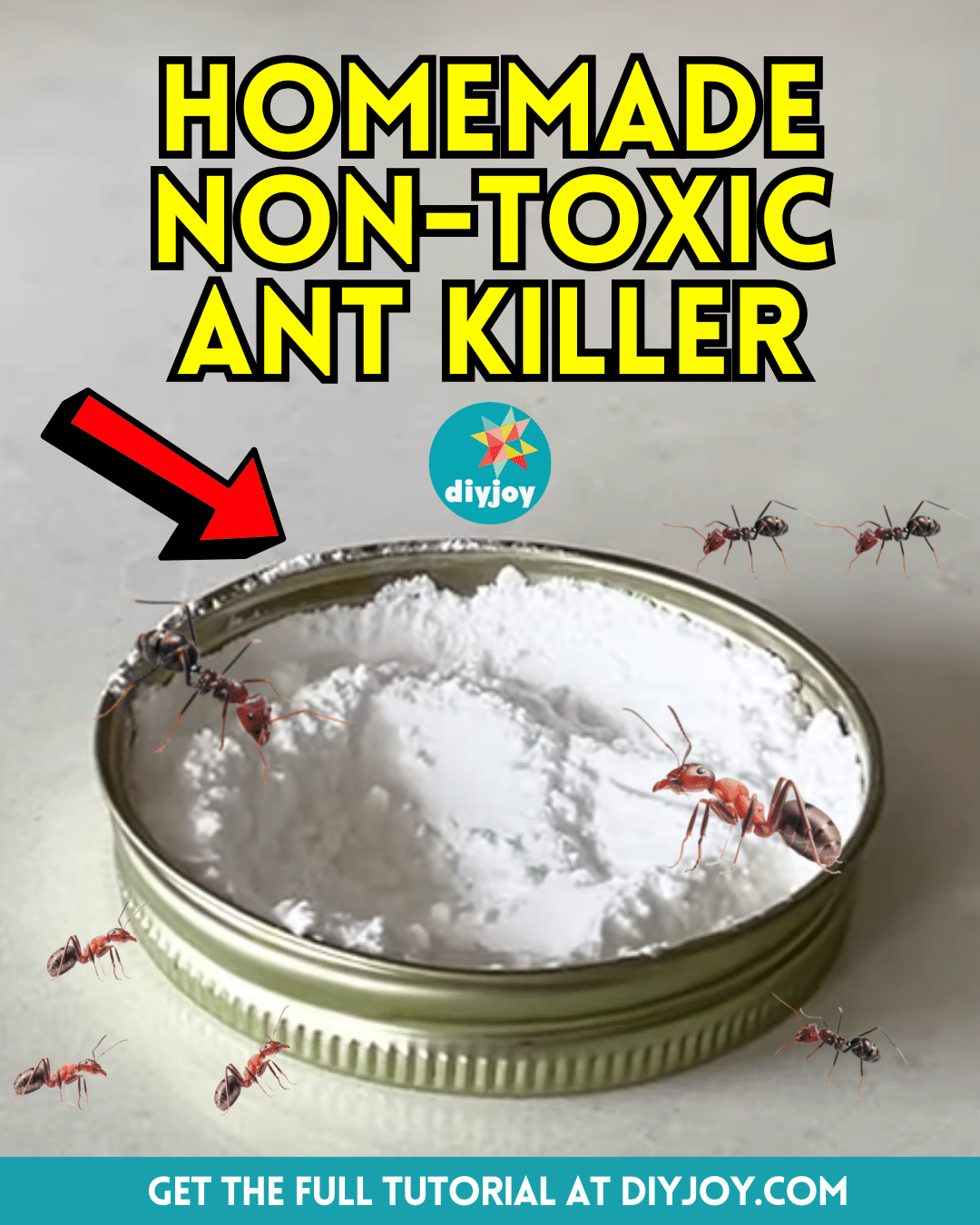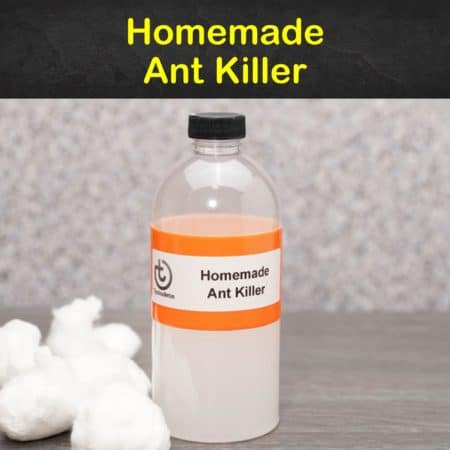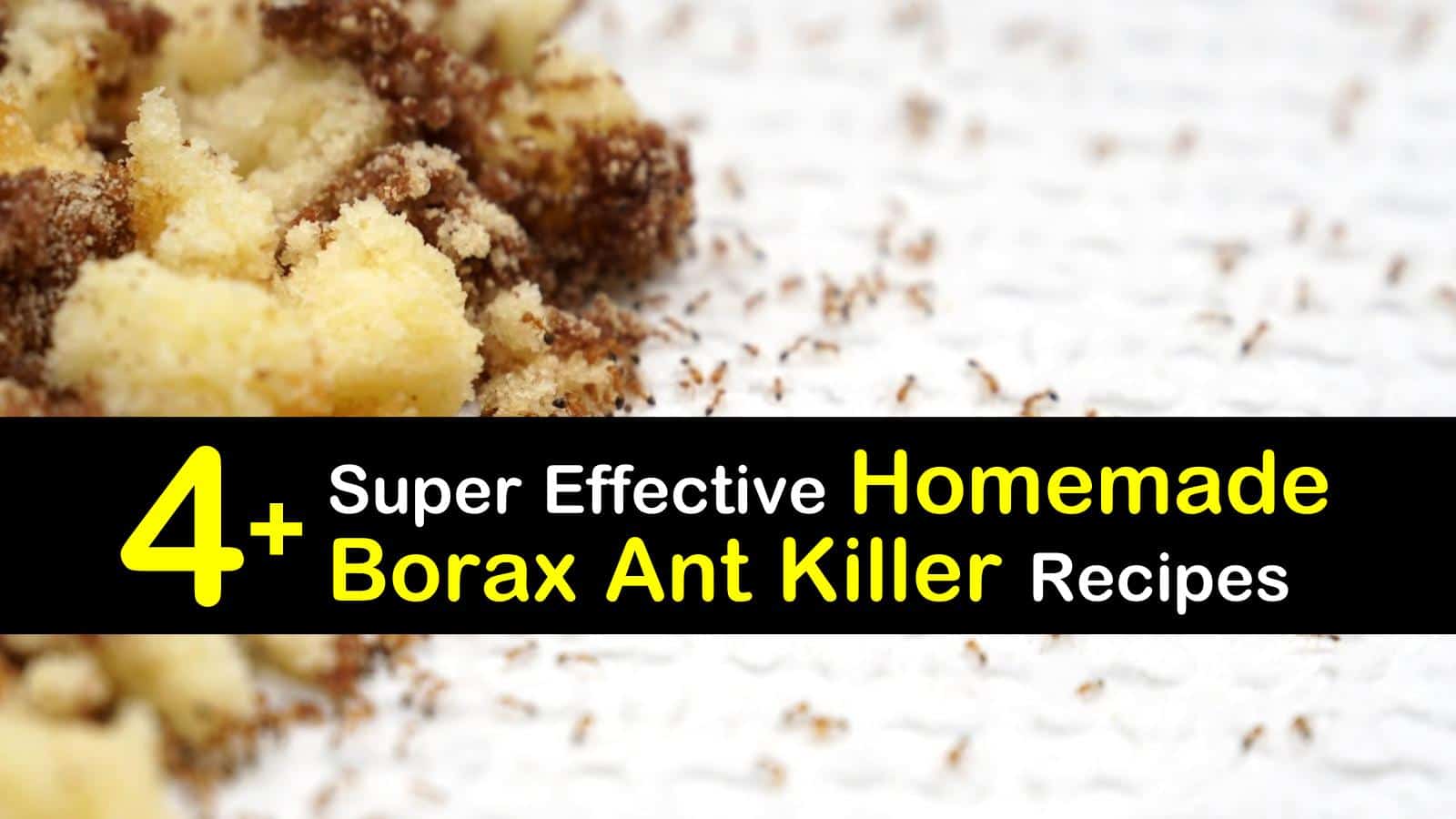Homemade Ant Killer - Easy Fixes For Your Home
It's a familiar sight, isn't it? One minute, your kitchen counter looks perfectly clean, and the next, there's a little line of tiny visitors making their way across it. Those small, unwelcome guests can pop up almost anywhere, and it seems they often appear right when you least expect them. Spring, in particular, tends to bring them out, making their presence felt inside and outside our living areas, which is just a little bit annoying, to say the least.
When you spot those little crawlers, your first thought might be to reach for something strong from the store, but you know, there are actually quite a few simple, everyday things you probably already have around the house that can help. People are often looking for ways to deal with these situations using things that feel a bit more natural, especially when it comes to spaces where kids or pets spend time. So, it's pretty nice to know that you don't always need special chemicals to get the job done, is that right?
This discussion will walk you through some really straightforward ways to tackle those tiny invaders, using items like things from your pantry or even some common cleaning supplies. We will look at how to make simple concoctions that attract them, how to create sprays that make them go away, and how to set up traps that help reduce their numbers. You'll find out what works well for different spots and what to keep in mind to keep everything safe for your home and those who live in it, you know, just to make things easier.
Table of Contents
- Dealing with Unwanted Guests - Why Consider a Homemade Ant Killer?
- Simple Solutions You Can Mix Up - What Goes Into a Homemade Ant Killer?
- Beyond the Bait - How Can a Homemade Ant Killer Also Repel?
- Are Homemade Ant Killer Solutions Truly Safe for Your Living Space?
Dealing with Unwanted Guests - Why Consider a Homemade Ant Killer?
When those little lines of ants show up in your kitchen or elsewhere, it can feel like a bit of a surprise, can't it? Many people instantly start looking for a way to get rid of them, and for good reason. Nobody really wants tiny creatures marching across their countertops or floors. So, a lot of us turn to what we know, which might be something from the store. But there's another way, one that uses things you probably already have close at hand, and it's quite popular because it feels a bit more personal and often less harsh, you know, for your home.
The Appeal of a DIY Homemade Ant Killer Approach
There's something genuinely satisfying about solving a common household annoyance with things you already possess, and that's really the big draw of making your own homemade ant killer. People often feel better about using ingredients they recognize, especially in places where food is prepared or where pets and children play. It gives a sense of control over what's being put into your living area, which is a pretty comforting thought. Plus, it can save you a trip to the store and a little bit of money, too, which is always a bonus, isn't it?
The idea that you can tackle a problem like an ant visit with simple items like sugar, baking soda, or even a bit of vinegar is quite appealing. It means you don't have to worry about reading long labels with complicated names you can't pronounce. Instead, you're just mixing up a few everyday things to create something that can actually help. This approach is often seen as a gentle way to manage these tiny creatures, even if the end result for the ants is not so gentle, you know, for them.
Simple Solutions You Can Mix Up - What Goes Into a Homemade Ant Killer?
So, you're probably wondering what kinds of simple things you can actually use to make a homemade ant killer that really works. It turns out, some of the most effective ways involve ingredients that are probably sitting in your pantry or under your sink right now. The trick is understanding how these common items interact with ants and how to put them together in a way that makes them appealing to the tiny creatures, even though the ultimate outcome for the ants is not a happy one. It's about using their natural tendencies against them, basically.
Borax, Sugar, and Water - A Classic Homemade Ant Killer Recipe
One of the most talked-about ways to create a homemade ant killer involves a mix of borax, sugar, and a little bit of water. This combination is quite popular because it uses a sweet attraction to get the ants interested. Ants, like many creatures, are always on the hunt for food, especially sugary things that give them energy. So, when they find this sweet mixture, they are very likely to take some back to their nest, sharing it with the rest of their family, including the queen, which is pretty much the whole point.
To make this, you'll want to get a small container, maybe a shallow dish or even a piece of wax paper. You then take some borax, which is a mineral salt, and mix it with a good amount of sugar. The sugar is the lure, making the mixture incredibly attractive to the ants. You can add just enough water to create a thick, syrupy paste. The goal is to make it easy for the ants to carry bits of it back to their home. Once you have this paste, you can place small dollops of it near where you see the ants walking. The borax acts as a slow-acting agent, which is quite important because it means the ants have time to carry it back to their colony before it starts to affect them, helping to deal with the whole group, you know, not just the ones you see.
This method is quite effective because it targets the entire group, not just the individual ants you spot. When the ants carry the mixture back, they spread the borax throughout their community, which is really how it helps to get rid of the problem from its source. It might take a little bit of time, maybe a few days, to see the full results, but many people find this homemade ant killer to be a very reliable option for getting those unwanted guests to leave. Just be sure to place it in spots that are out of the way of curious pets or little hands, just to be on the safe side, of course.
Another Sweet Treat - Cornmeal and Boric Acid for Your Homemade Ant Killer Strategy
For those looking for a different kind of sweet bait in their homemade ant killer strategy, a mix of cornmeal and boric acid can also do the trick. This combination works on a similar principle to the borax and sugar one: the cornmeal acts as a food source that ants are drawn to, and the boric acid is the element that helps to deal with them. It's a way to use something they like to eat against them, which is a pretty clever approach, actually.
To prepare this, you would typically combine about nine parts cornmeal with one part boric acid powder. You want to make sure these two ingredients are mixed together very thoroughly, so that every bit of cornmeal has some of the boric acid mixed in with it. The idea is that the ants will pick up the cornmeal, thinking it's a tasty meal, and carry it back to their colony to share with others. The boric acid is the part that is harmful to the ants once they consume it, leading to a gradual decline in their numbers. This method is often used for a more general approach to getting rid of the entire ant community, you know, rather than just a few stragglers.
Another interesting way to use boric acid with a different kind of bait is to mix it with peanut butter. Ants are also quite fond of fats and proteins, so peanut butter can be a very appealing lure for them. You might mix one spoonful of peanut butter with a teaspoon of boric acid. Once you have that mixture, you can get a plastic straw, push the mixture into the straw until it’s full, and then cut the straw into smaller parts. These little straw segments can then be scattered in places where you see ants moving about. The straw helps keep the mixture contained and makes it easy for the ants to access without making a mess, which is a nice touch, too, in a way.
Beyond the Bait - How Can a Homemade Ant Killer Also Repel?
While baits are great for getting rid of the entire group of ants, sometimes you just want to make them go away from a certain area, or stop them from coming in altogether. This is where natural repellents come into play. These methods don't necessarily kill the ants, but they make an area very unattractive for them, causing them to turn around and look for somewhere else to be. It's like putting up a "no entry" sign for them, which can be pretty effective for keeping them out of specific spots, you know, like your kitchen counters.
Sprays and Scents - Natural Homemade Ant Killer Repellents
There are several common household items that ants really don't like the smell of, and these can be turned into effective homemade ant killer repellents. Vinegar, for example, is a very popular choice. Its strong scent disorients ants and disrupts their scent trails, which they use to communicate and find food. You can make a simple spray by mixing equal parts white vinegar and water in a spray bottle. This can be sprayed directly onto ant trails, around entry points like windowsills and doorframes, or even on surfaces where you've seen them. It's a pretty versatile solution, actually.
Adding a little bit of dish soap to your vinegar and water mix can make it even more effective. The dish soap helps the mixture stick to the ants and can also help to break down their waxy outer layer, making them more vulnerable. Some people also like to add a bit of baking soda to this type of spray, which can create a fizzing reaction that further disrupts the ants. This kind of homemade ant killer spray is safe for most surfaces and helps keep those little lines from forming, which is a very good thing.
Beyond vinegar, other natural scents that ants dislike include citrus (like lemon or orange peels), cinnamon, and certain essential oils such as peppermint or tea tree oil. You can sprinkle cinnamon powder near entry points, or rub citrus peels along windowsills. For essential oils, a few drops mixed with water in a spray bottle can create a fragrant barrier that ants will avoid. For example, a natural ant spray made with peppermint essential oil can be quite potent for ants, making them want to steer clear of the treated areas. These methods are more about prevention and deterring, rather than eliminating the whole group, but they are very useful for keeping specific spots clear, you know, just to be clear.
Are Homemade Ant Killer Solutions Truly Safe for Your Living Space?
When you're dealing with anything that helps to get rid of pests, a big question that often comes up is about safety, especially when you're making things yourself. People naturally worry about whether these homemade ant killer solutions are going to be safe for their family, including any pets, and also if they might cause any damage to the things around their home. It's a very valid concern, and it's good to think about these things before you start putting anything down, isn't it?
Surface Safety with Your Homemade Ant Killer Blends
For the most part, many of the homemade ant killer recipes, especially those using common kitchen ingredients, are pretty gentle on surfaces. For instance, solutions made with vinegar and water are generally unlikely to cause harm to most common household surfaces. People use vinegar for cleaning all sorts of things, so it's usually quite safe. However, just like with any cleaning product, it's always a good idea to do a quick test first. You could pick a small, out-of-the-way spot on the surface you plan to treat, apply a tiny bit of the mixture, and just wait a few minutes to see if there are any unexpected reactions. This way, you can be pretty sure it won't leave a mark or change the look of your furniture or floors, you know, just to be safe.
When it comes to ingredients like baking soda, which is often used in homemade ant killer recipes, it's generally considered very safe for people and pets. It's even used in cooking and for personal care, so it's not something you need to be overly concerned about from a human or animal perspective. However, for ants, it works differently. When they eat it, it can be quite harmful to them internally. So, while it's safe for you to have around, it's effective against the ants in a way that targets their internal systems. This is why it's a popular choice for those looking for a simple, yet effective, method.
Regarding the effectiveness of these homemade options compared to what you might buy in a store, it's interesting to consider. Many homemade ant killer recipes, especially those that use sweet things like sugar or honey, work by attracting the ants. As David Price, who knows a lot about these tiny creatures, has pointed out, ants are always looking for sources of energy and water, so anything sweet is a big draw for them. The idea is that the bait, even if it has something that will ultimately harm them, first needs to be appealing enough for them to take it back to their community. This is a very necessary step in getting rid of the entire group, not just the ones you happen to see marching across your floor. So, in many ways, they are designed to work just as effectively by using the ants' natural behaviors against them.
- Pull Up Bar
- What Does Taco Trump Mean
- Uncle Buck Cast
- %D8%B1%D8%AD%D9%8A%D9%84 %D8%B2%D9%88%D8%AC%D8%A9 %D9%8A%D8%B9%D9%82%D9%88%D8%A8
- Mitsubishi 3000gt

Easy Homemade Non-Toxic Ant Killer Tutorial - DIY Joy

17 DIY Ant Killer Recipes for Indoors & Out

4+ Super Effective Homemade Borax Ant Killer Recipes